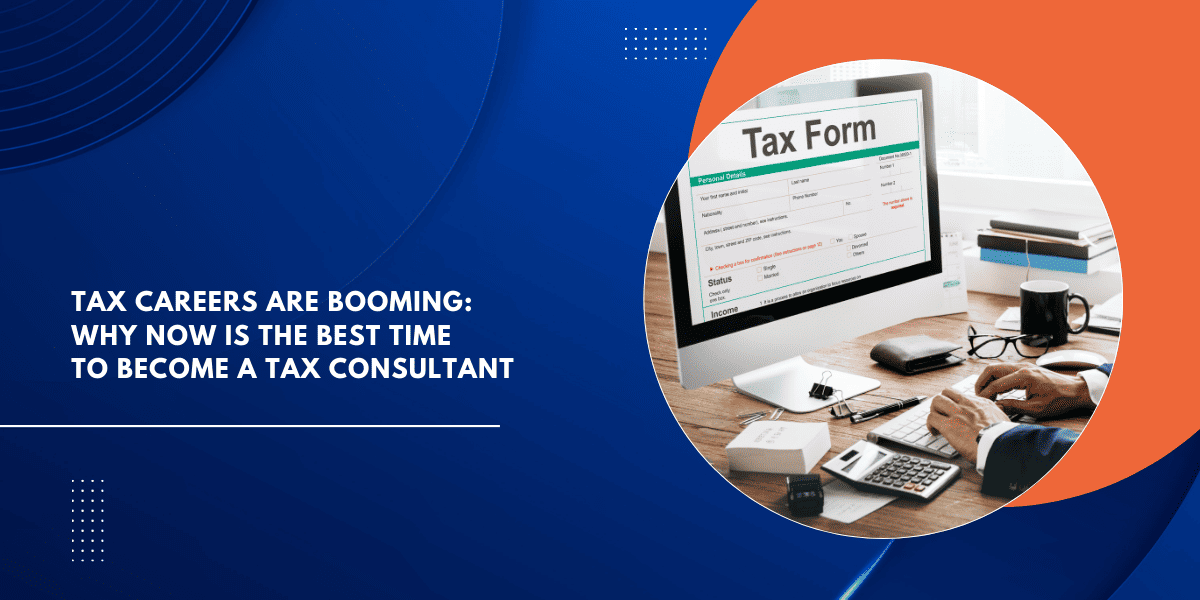“Blog written by Preethi Durga, a career strategist and education innovator.”
Introduction: Why an Entrepreneurial Mindset Matters?
What if the key to success wasn’t just hard work, but the way you think? Think about some of the most successful people—Elon Musk, Indra Nooyi, Ratan Tata. What sets them apart? Would you believe me if I told you it’s not just intelligence or resources—thinking like an entrepreneur can also change your career even if you do not own any business. They see challenges as opportunities, take calculated risks, and adapt to change like second nature.
But here’s the good news—you don’t need to launch a startup to think like an entrepreneur. My experience says that whether you’re climbing the corporate ladder, freelancing, or building your own brand, an entrepreneurial mindset can help you stay ahead in today’s fast-changing world. In fact, a study by the Global Entrepreneurship Monitor found that entrepreneurial thinking improves problem-solving skills and adaptability by 35%(GEM Report, 2023).
I’ve seen this firsthand in my work. Through NextMovez exclusive – Decision Matrix Mapping exercise, Ananya learned how to evaluate risks vs. rewards in her career. She realized her skills were better suited for digital marketing than corporate jobs. Today, she runs a successful business on her terms.
But what exactly makes an entrepreneurial mindset? Let’s break down the key traits and habits that define successful entrepreneurs—and how you can develop them. And remember, these skills are valuable whether you’re launching a startup, leading a corporate team, or working as a freelancer. Entrepreneurial thinking is about problem-solving, innovation, and leadership—qualities that every career benefits from.

Global Trends Affecting Entrepreneurial Careers
The business landscape is shifting rapidly, driven by technology, consumer behavior, and economic changes. Here’s how these global trends are influencing entrepreneurial success:
- Rise of the Creator Economy: Digital platforms now empower individuals to monetize their skills, eliminating traditional business barriers.
- Tech-Driven Business Models: AI, blockchain, and automation are transforming industries, making scalability and efficiency easier than ever.
- The Gig Economy Boom: Over 36% of the global workforce now participates in freelance and gig work (McKinsey, 2023), proving that traditional employment isn’t the only path to financial stability.
- Sustainability and Social Impact: Businesses prioritizing ethical and sustainable practices are thriving as consumer expectations evolve.
Industry Spotlight: The Demand for Entrepreneurial Thinkers
You don’t need to own a business to benefit from an entrepreneurial mindset. Companies today actively seek employees with entrepreneurial skills like creativity, adaptability, and leadership. In fact, a LinkedIn Workplace Learning Report found that 92% of talent professionals believe entrepreneurial thinking is critical for business growth (LinkedIn Report, 2023).
Startups & Tech Companies
Many of the world’s most successful companies embrace an entrepreneurial mindset within their organizations.
- Google’s 20% Time Rule: Google encourages employees to dedicate 20% of their time to personal projects outside their core job responsibilities. This approach has led to innovations like Gmail, Google Maps, and Google News.
- Takeaway: Whether or not your company has a formal innovation program, you can adopt this mindset by setting aside time for creative problem-solving. Identify challenges in your role, propose new solutions, and take initiative on side projects that add value to your team or industry. I’ve seen job seekers stand out by showcasing side projects that demonstrate initiative and innovation.
- Facebook (Meta) Hackathons: Facebook fosters a culture of intrapreneurship by hosting hackathons where engineers collaborate on experimental ideas. The “Like” button, one of Facebook’s most iconic features, was born from one of these events.
Takeaway: You don’t need a formal hackathon to innovate. In my experience, the professionals who stand out are the ones who take the initiative—whether it’s organizing a quick brainstorming session with teammates, streamlining a workflow, or experimenting with a new tool to improve efficiency. Companies notice and reward those who proactively drive change, even in the most structured corporate environments.
Corporate Innovation
Entrepreneurial thinking isn’t limited to startups—it’s a driving force in large corporations as well.
- Tesla’s Risk-Taking Culture: Tesla disrupted the automotive industry by taking bold risks, from direct-to-consumer sales to AI-powered autonomous driving technology.
- Takeaway: In my experience, the most successful professionals aren’t just those who follow industry norms—they’re the ones who challenge them. If you want to accelerate your career, start asking, “Is there a better way to do this?” Whether it’s optimizing a process, leveraging new technology, or rethinking outdated strategies, developing a mindset of continuous improvement will set you apart in any field.
- Amazon’s Reinvention Strategy: Amazon evolved from an online bookstore to an e-commerce giant by constantly innovating. Amazon Prime, once a risky bet, became a $25 billion revenue stream.
- Takeaway: In today’s fast-changing world, career success isn’t just about stability—it’s about staying relevant. I’ve seen professionals who thrive because they embrace reinvention, whether by upskilling, pivoting to emerging roles, or finding innovative ways to add value. The key is to keep learning, stay adaptable, and proactively shape your career instead of waiting for opportunities to come to you.
Freelancing & Gig Economy
The rise of freelancing and the gig economy has allowed millions of individuals to become their own bosses and build careers with flexibility.
- Fiverr & Upwork Success Stories: Many professionals in writing, graphic design, video editing, and software development have built six-figure incomes by leveraging these platforms.
- Takeaway: Freelancing isn’t just a side hustle or a backup plan—it’s a powerful career path for those who take ownership of their skills and growth. I’ve worked with professionals who went from struggling in traditional jobs to thriving as freelancers simply by positioning themselves strategically, building a strong personal brand, and consistently delivering value. The key is to treat freelancing like a business—market yourself, network intentionally, and keep evolving with industry trends.
- Airbnb’s Pivot to a Global Business: Airbnb started as a simple idea—renting out air mattresses—but transformed into a global hospitality leader by adapting to consumer needs.
- Takeaway: Whether you’re freelancing, consulting, or climbing the corporate ladder, your ability to adapt and pivot will define your long-term success. I’ve seen professionals who stayed rigid in their careers struggle when industries evolved, while those who embraced change—learning new skills, exploring different roles, and staying ahead of trends—continued to grow. The job market rewards agility, so the sooner you build this mindset, the more opportunities you’ll create for yourself.
By understanding these trends and applying entrepreneurial thinking to your career, you can create new opportunities for growth—whether you work for yourself or a company.
Job Demands and Hiring Trends: Why Companies Value an Entrepreneurial Mindset
Companies no longer hire based just on degrees. The most in-demand skills today are adaptability, problem-solving, and an entrepreneurial mindset. Employers are actively seeking individuals who can think independently, take initiative, and contribute beyond their job descriptions.
Key Hiring Trends:
- Skills Over Degrees: Hiring managers now prioritize real-world skills over formal qualifications. Candidates who showcase problem-solving abilities and a proactive approach stand out.
- Entrepreneurial Thinking: Companies value employees who take ownership of their work, think strategically, and drive innovation—even within structured roles.
- Tech-Enabled Adaptability: With AI and automation reshaping industries, professionals who continuously upskill and stay ahead of technological advancements have a competitive edge.
Having worked with professionals across industries, I’ve seen firsthand how companies prioritize proactive problem-solvers over passive degree-holders. The ability to analyze challenges, identify opportunities, and take action is what sets top candidates apart.
How NextMovez Helps You Stay Ahead?
At NextMovez, we guide students to understand their natural strengths and leverage them to develop entrepreneurial skills that go beyond academia. Our framework helps professionals build adaptability, critical thinking, and problem-solving abilities—ensuring they are not just employable, but indispensable.
Through our Decision Matrix Mapping exercise, for instance, we help students make career choices based on real-world risks and rewards, rather than just following conventional paths. The result? They develop the confidence to explore unconventional roles, freelance opportunities, and leadership positions within companies, shaping careers that align with their strengths and aspirations.
If you want to future-proof your career, it’s time to move beyond traditional learning and embrace a mindset of continuous growth and innovation.
Emerging Skills Required: What It Takes to Succeed with an Entrepreneurial Mindset

Companies today don’t just look at degrees—they want problem solvers who can adapt and apply their knowledge in real-world situations. From my experience, the most in-demand professionals are those who combine technical expertise with strategic thinking and a willingness to learn. If you want to stay ahead, focus on developing these key skills:
- Digital & Technological Literacy
Technology is shaping every industry, and understanding digital tools is no longer optional. Entrepreneurs and professionals who leverage AI, automation, and digital marketing gain a competitive edge.
Key Skills to Learn:
✔ AI & automation tools (ChatGPT, Bard, automation software)
✔ Data analytics & visualization (Google Analytics, Tableau)
✔ E-commerce & digital marketing (SEO, paid ads, influencer marketing)
What You Can Do: (a) Learn how these technologies impact your industry by taking a free online course on AI tools like ChatGPT, Google Bard, or data analytics platforms. (b) Explore hands-on projects to apply your knowledge.
- Critical Thinking & Problem-Solving
Entrepreneurs don’t just execute tasks—they solve problems and identify opportunities. The ability to think critically and pivot when needed is crucial for success.
Key Skills to Learn:
✔ Design thinking & creative problem-solving
✔ Risk assessment & decision-making
✔ Lean startup methodology
What You Can Do: Start by questioning assumptions in your daily work—ask, “Is there a better way to do this?” Join case study discussions or participate in hackathons to sharpen this skill.
- Adaptability & Resilience
The business world is unpredictable. Those who embrace change, learn from failures, and stay resilient have a better chance of long-term success.
Key Skills to Learn:
✔ Agility & pivot strategies
✔ Crisis management
✔ Growth mindset & continuous learning
What You Can Do: (a) Stay ahead by continuously upskilling—commit to learning a new tool or methodology every quarter. (b) Follow industry leaders, attend webinars, and join professional communities to stay updated.
- Leadership & Collaboration
Whether you’re leading a startup or a corporate team, entrepreneurial success depends on working with others. Strong leadership ensures innovation is effectively executed.
Key Skills to Learn:
✔ Team management & delegation
✔ Negotiation & communication
✔ Emotional intelligence
What You Can Do: Practice articulating your ideas clearly—write LinkedIn posts, contribute to team meetings, and seek feedback on your presentation skills. Learning to collaborate across diverse teams is just as important.
At NextMovez, we guide students to identify their natural strengths and develop entrepreneurial skills that go beyond academia. By focusing on real-world applications, we help them stay ahead in a job market that values innovation, adaptability, and proactive thinking.
Expert Insights: What Industry Leaders Say?
According to Richard Branson, Founder of Virgin Group, “Entrepreneurship isn’t about being your own boss. It’s about taking ownership of your work and having the confidence to innovate.”
A great example of this mindset is Microsoft’s internal entrepreneurship initiative. The company encourages employees to pitch new ideas through its AI for Good program, which has led to groundbreaking innovations in climate tech and healthcare AI (Microsoft AI, 2023).
Similarly, Shark Tank investor Mark Cuban highlights the importance of continuous learning: “Entrepreneurs who stay curious and adaptable will always find new ways to succeed.”
Takeaway: Reinvention isn’t optional—whether you’re an entrepreneur or an employee, staying ahead of industry shifts is key.
Future Outlook: Why Now is the Best Time to Develop an Entrepreneurial Mindset
The future of work isn’t something to prepare for “someday”—it’s unfolding right now. Job roles are evolving, automation is reshaping industries, and companies are prioritizing skills over credentials. With global entrepreneurship rates rising by 24% in the last five years (Global Entrepreneurship Index, 2023), now is the perfect time to start developing these skills. If you want to stay relevant, you can’t afford to wait. Here’s what you can do:
- Start investing in your skills, adaptability, and entrepreneurial mindset today.
- Take online courses on AI, automation, and data-driven decision-making (Platforms like Coursera, Udemy, and LinkedIn Learning).
- Develop digital literacy—learn how to leverage tools like ChatGPT, Notion, or automation software.
- Gain industry-relevant certifications that align with future job roles.
Top Industries Valuing Entrepreneurial Thinkers:
- Technology & AI – Companies like Google, Apple, and Tesla seek intrapreneurs.
- E-commerce & Digital Marketing – Businesses like Amazon and Shopify thrive on innovation.
- Education & EdTech – Platforms like Coursera and Byju’s have reshaped learning.
Ready to develop an entrepreneurial mindset and succeed in any career? Connect with NextMovez experts today and start your journey to success!
Need Personalized Guidance?
At NextMovez, we help professionals and students develop entrepreneurial skills that open doors to exciting career opportunities. Whether you’re looking for career coaching, industry insights, or hands-on projects, we’re here to help.
Get in touch with us today to start building the mindset that will set you apart in business and life!






















